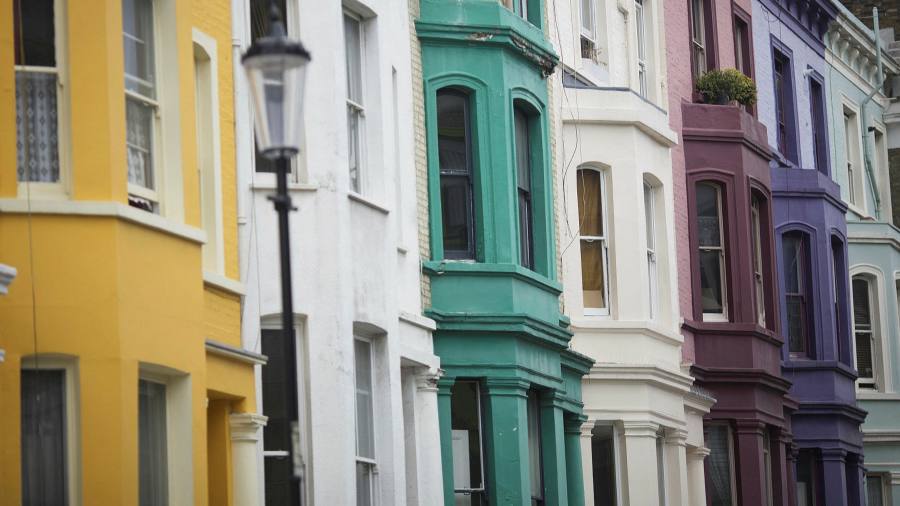[ad_1]
One of the most attractive features of my Victorian home is its windows. Big and curved, the sash panes are easy on the eye but an environmental disaster. They are partly why my heating bills cost a small fortune, although a larger one would be needed to make them energy efficient.
No sane person should want to read about a columnist’s windows, except that they are a prime example of everything that is wrong with the UK’s environment policies and net zero strategy. Without sorting out the carbon emissions that result from my draughty windows (and millions of other households with similar issues), the country simply will not eliminate its net carbon emissions by the target date of 2050.
We talk a lot about polluting vehicles, but homes are close behind surface transport in carbon emissions, according to the government’s independent advisers, the Climate Change Committee. Soon they will be the biggest source of greenhouse gas emissions.
A government that was serious about emissions from homes would provide households with carrots and sticks to encourage energy efficiency, and a switch from always-polluting gas consumption towards increasingly clean electricity generated from renewable sources. But the UK prime minister Boris Johnson is not serious about this.
The maths is simple. A national “green homes grant†provides a subsidy of up to £5,000 to cover two-thirds of the cost of energy improvement measures. Outwardly generous, the scheme has flopped because it is highly restrictive, only allowing energy-saving measures such as “secondary†improvements to windows and doors if combined with “primary†measures often inappropriate for older homes.
Climate Capital
It’s perfectly reasonable to say I shouldn’t benefit from such taxpayer-funded carrots anyway because I am in the upper part of the income distribution and should pay my own way. That’s fine, and I do. But the government still gives me a carrot to keep burning gas.
Home improvements carry the normal value added tax rate of 20 per cent, but both gas and electricity attract a discounted 5 per cent rate. That encourages energy use. Worse, there is a stealth tax on energy bills through the “environmental and social obligations†required from energy companies, which is loaded weirdly on to electricity but not gas bills. According to Ofgem, the regulator, these account for under 2 per cent of a typical gas bill, but nearly 23 per cent of electricity bills.
The result of the government’s incentive structure is that on my current tariffs, I pay 2.8p for every kilowatt hour of energy I use when I burn gas and 14.2p for the equivalent green electrical energy. When gas is subsidised and electricity is five times as expensive, it is not just economists who will keep burning fossil fuels and do nothing about their inefficient windows.
In his Budget, Chancellor Rishi Sunak gave the Bank of England’s Monetary Policy Committee a secondary mandate to have regard for environmental sustainability. But that will have no effect on my home energy use or anything else environmentally important.
With the UK hosting the UN’s COP26 climate summit this year, and the Treasury promising a net zero review in the autumn, there is still time for the government to develop substance on green issues related to homes.
If it wants to show it can be serious, energy efficiency grants need to be much less restrictive and ministers should ban the sale of new gas boilers from 2030 — similar to the prohibition of new internal combustion-engine powered cars from then. The government should add the costs of environmental and social obligations to gas not electricity bills. And it should plan now to beef up electricity supply networks to cope with additional demand.
Anything less would be just hot air.
[ad_2]
Source link






